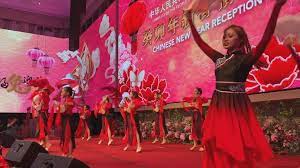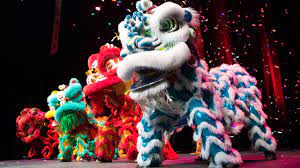UoS, Confucius Institute jointly celebrate Chinese new year

Sargodha: The University of Sargodha (UoS) and the Confucius Institute of the university here jointly organised an event in connection with the Chinese new year celebrations.
The Chinese new year is one of the most important event in the lives of the Chinese people as it takes place with the arrival of spring season and is also known as Spring Festival, a time for the reunion of families and friends with festive atmosphere.
In the Chinese lunar Calendar, there are 12 years and each year is depicted by an animal like rat, ox, tiger, rabbit, dragon, snake, horse, sheep, monkey, rooster, dog and boar. This year, starting from January 22, is the year of rabbit.
Director Confucius Institute Jane Chen, in his introductory remarks, said that the Chinese people practice the new year traditions since ancient times. She shared information about the traditions of Chinese new year celebrations.

She said the Chinese people celebrate the new year with customs and traditions such as making couplets and decorating their houses, preparing special foods such as dumplings and fish which symbolise money and wealth, using firecrackers to celebrate, family and friends reunions and paying new year visits to the loved ones.
Miss Jessica, the Chinese language teacher, shared the information about the traditional event of paper-cutting. She also shared the motives behind this traditional event that Chinese people use paper-cutting as a way to express their feelings of joy and happiness.
She said that paper-cutting could be of any shape like paper-cutting of Chinese zodiac animals, children, flowers or any Chinese character. She also performed the activity with the students where students learned paper-cutting of the Chinese character “chun”.
Dr Cao taught the pronunciation of expressions for blessings that are used at Chinese Spring Festival. He also taught students about how to make couplets.

Educationist Dr Fazlur Rahman, in his concluding remarks, highlighted the importance of the culture in everyday life and advised students to learn the Chinese language wholeheartedly to get to know the Chinese culture, traditions and history.
He emphasised that the 21st Century belongs to China as a leading progressive and cooperating power.





